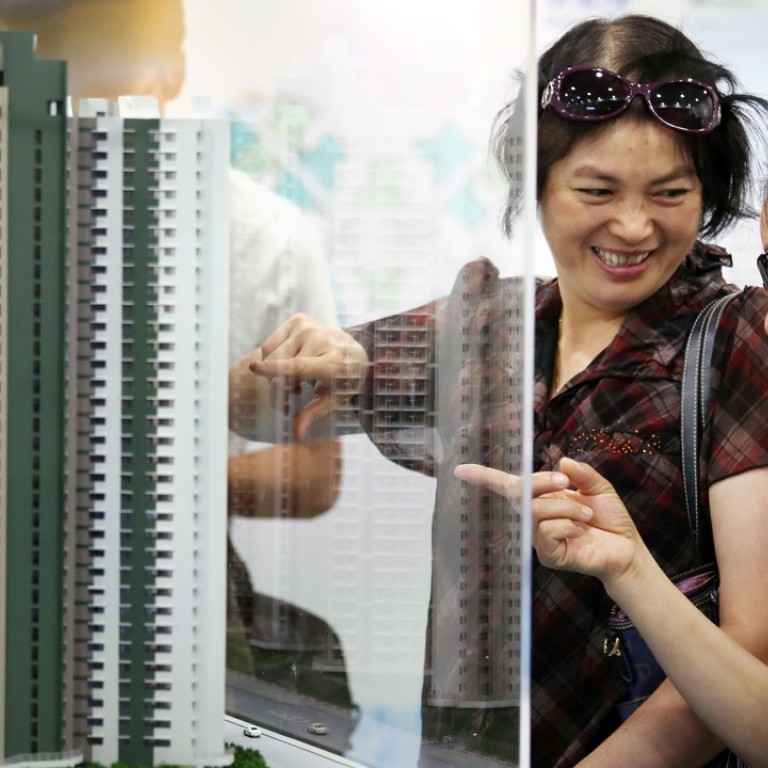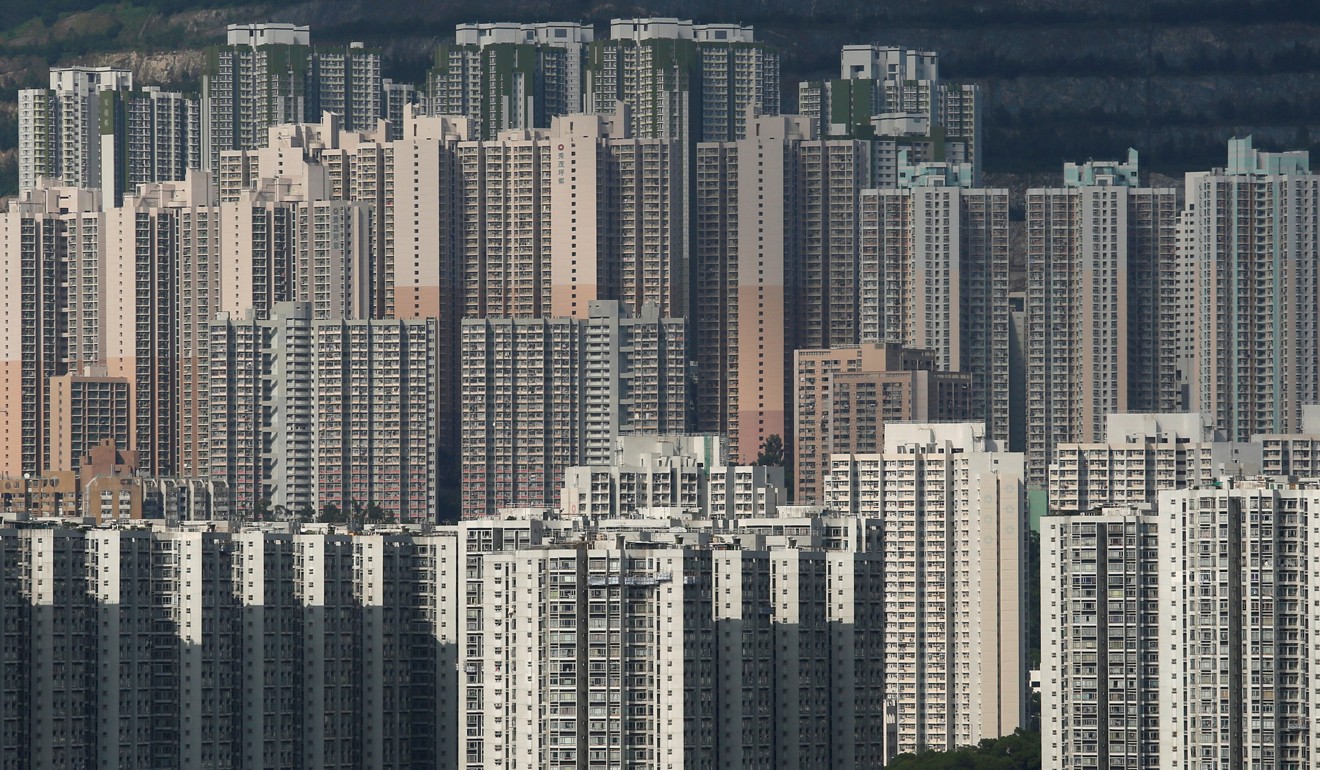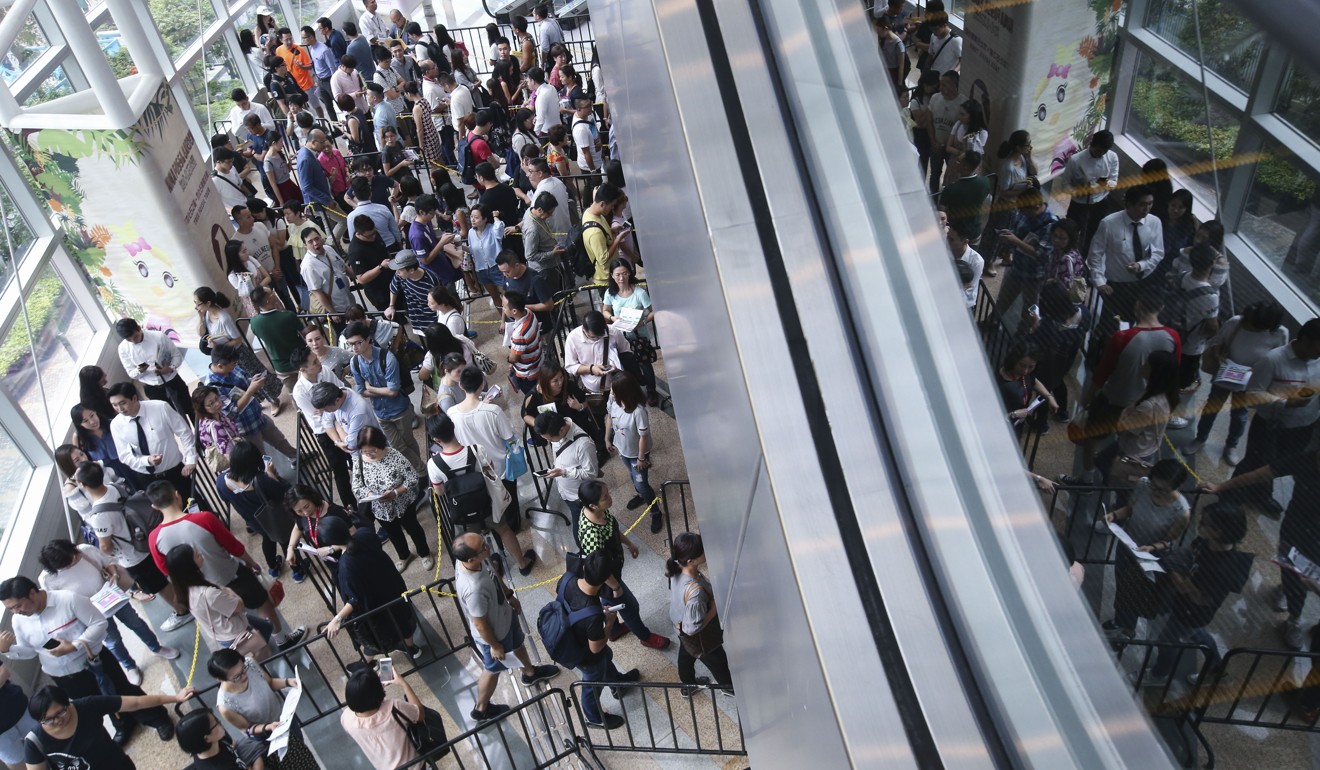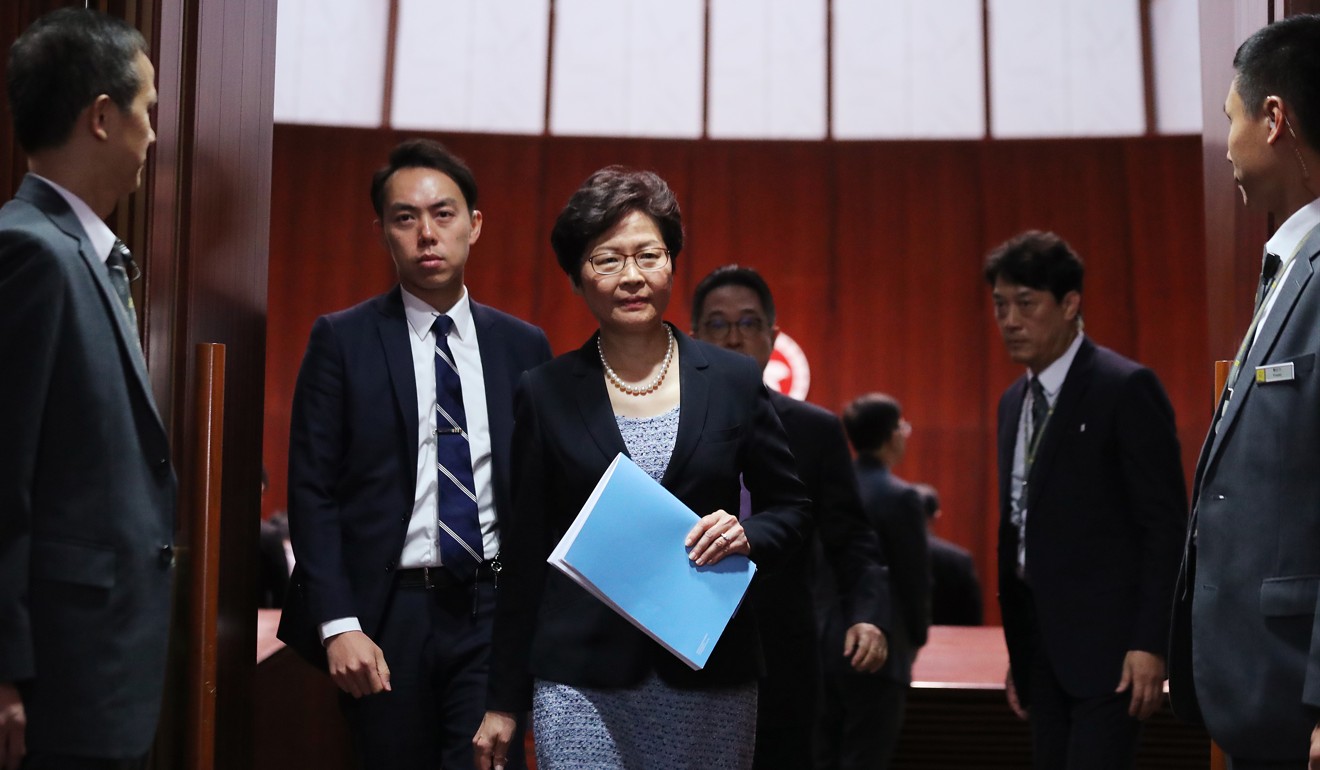
Hong Kong’s developer cartel in line to benefit from Carrie Lam’s schemes, industry watchers say
Concerns follow Lam’s maiden policy speech, which some say will drive residents into the private market
A cartel of Hong Kong developers who own an estimated 1,000 hectares of farmland stand to benefit the most from new housing schemes announced in the chief executive’s policy address, industry watchers have said.
Despite long commutes to save money, Hong Kong couple just can’t keep pace with rising property prices
“I don’t know whether this is the government’s intention, but the reality is that a whole load of people would be pushed to the private market, which has been dominated by a few developers,” said Yeung Ha-chi, a member of Liber Research Community, a non-governmental research group on land issues.
The concerns follow Lam’s policy speech on Wednesday, which introduced a package of policies to boost ownership, including the Starter Homes Scheme, which aims to help middle-class families with too much income to qualify for government-subsidised housing but who are too poor to afford private housing.
The package also includes a plan to provide more subsidised flats to be sold to public rental housing tenants.

But Yeung said the policies appeared to be encouraging people with different incomes to get on the first rung of the property ladder, which would eventually lead to the private market.
Hong Kong’s property prices have increased by 430 per cent since 2003. This year, for the seventh year running, the city was ranked the world’s most expensive urban centre – among 406 cities – to buy a home in by the Demographia International Housing Affordability Survey.
Yeung said the Starter Homes Scheme, for example, which involved the government selling some sites to developers but adding lease conditions that they needed to provide a proportion of affordable flats in the future developments, would encourage more people to buy properties.
He questioned why property ownership had to be the ultimate goal and criticised Lam for failing to mention how to regulate the rental market.
But Lawrence Poon Wing-cheung, a housing scholar at City University, said Hongkongers generally preferred to own a home if they have the chance to, because it lets them have their own asset.
“If one day you want to emigrate overseas, you can sell your flat and get your money back,” Poon said. “But if you are renting, your money is gone.”
Restrictions on Hong Kong property market to cool prices won’t change, leader indicates
He said the government should reserve more sites for developing subsidised housing instead of selling these sites to developers, because he believed there had been more demand for affordable housing.
During a radio programme on Thursday, Lam denied accusations of collusion.
“I am very concerned that conspiracy theories of collusion have been appearing on everything that the government does,” she said. “I can tell everyone that this is not the case and they should not be worried.”
In her policy address, Lam promised not to use property reserved for developing public housing to develop Starter Homes .
“It now appears that the land supply for ‘Starter Homes’ will have to come from sites already owned by private developers or to be bought from the government,” she said.
Yeung said he suspected that Lam was paving way for developers to build on farmland.
It has been estimated that Hong Kong’s three major developers – Henderson Land Development, New World Development and Sun Hung Kai Properties – have obtained a combined land bank of almost 1,000 hectares, mostly agricultural land in the New Territories.
13,000 buyers swamp Tseung Kwan O property project for just 400 flats, despite warning about market
These developers, which bought the land cheaply from farmers early on, had previously struggled to get official approval to change the use of the land to residential.
Yeung said if Lam allowed developers to get approvals to build Starter Homes on these sites, it would open a door for more farmland development, which would further weaken the local agricultural industry and threaten many sites with high ecological value.
But Poon countered that Hong Kong’s capitalist system means the government needs to protect private property and could not easily buy private properties back.
Under such circumstances, Poon said, the government could leave the land to never be developed, or seek ways to develop the sites with their owners together, such as requiring developers to reserve half the future flats for affordable housing.

“In this way the government does not need to use its own land or spend any money on construction to increase supply for subsidised housing,” he said.
The affordability of Starter Homes have also come into question. Although officials said the government was still studying the pricing mechanism, a government source said monthly mortgage payments, as measured against monthly income, might be in line with that for other subsidised housing, which is 40 to 50 per cent.
As the income limits for the scheme range from HK$26,000 to HK$34,000 for single people and from HK$52,000 to HK$68,000 for households of at least two, such a mortgage-to-income ratio could mean the flats could cost as much as HK$8 million.
Henderson’s interim profit more than doubles in Hong Kong’s real estate boom
The Green Form Subsidised Home Ownership Scheme, which allows households currently renting government flats to buy their own home at 40 per below the market rate, has also had its efficacy questioned.
Lam said the scheme would not reduce the overall supply of rented flats because the same number of rented flats would be freed up as tenants move into subsidised housing.
She said that compared with newly developed public rental housing estates, which tend to cluster in relatively remote areas, the scheme would free up more existing rented flats in a variety of districts, offering more choices to people waiting.

But Anthony Chiu Kwok-wai, executive director of the Federation of Public Housing Estates, said the scheme would not make people on the waiting list get a flat any quicker, because after a flat was freed up, it takes time to renovate it and rent it to the next tenant.
He said flats for sale under the scheme had the same quality as public housing but were sold for only 60 per cent of the market rate, while public housing tenants could rent their flats much cheaper.
“Why would they want to buy these flats?” Chiu said.

